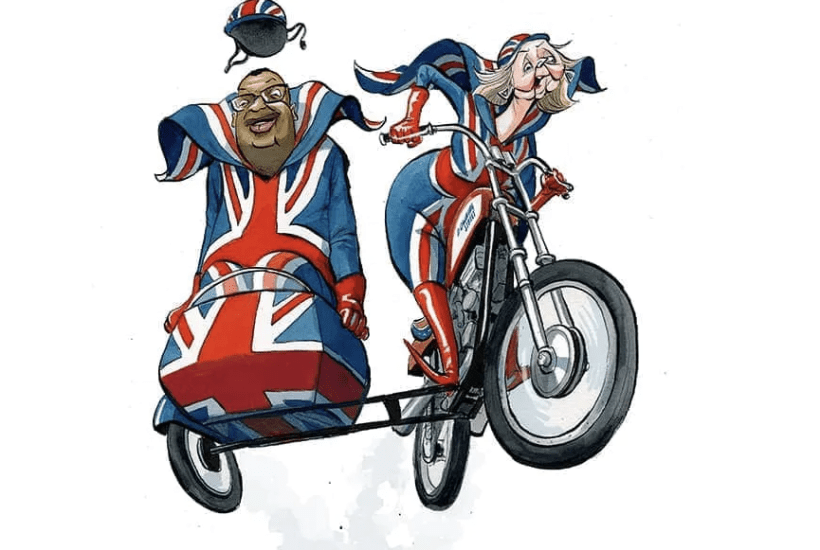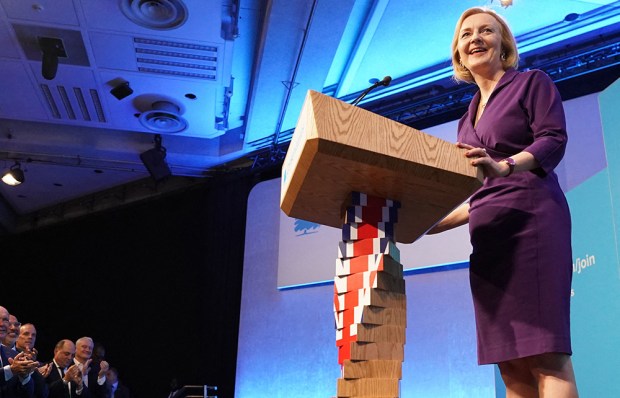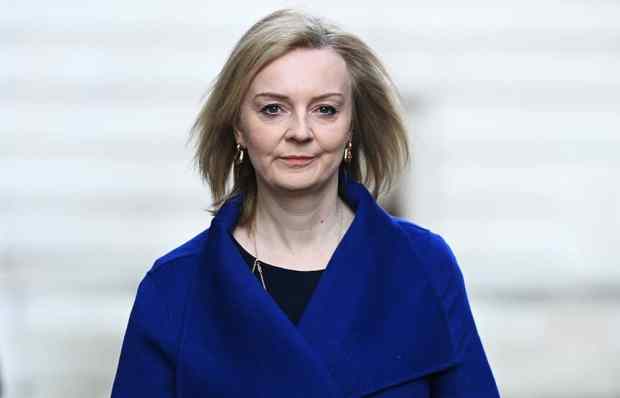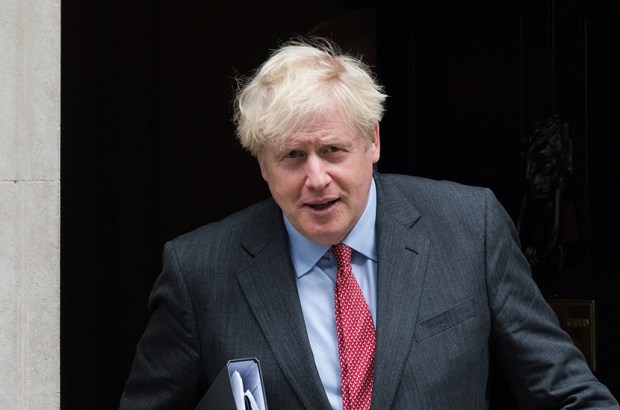This year’s Conservative party conference was supposed to be a moment of celebration for the new Tory leader. Instead there is a sense of mounting alarm. Liz Truss’s radicalism has been met with something approaching panic by both the markets and the public. The Bank of England has had to intervene in the gilts market to prevent ‘a material risk to UK financial stability’. The pound hit a 230-year low against the dollar. Meanwhile, Labour has moved into a 17-point lead in the polls.
YouGov finds that just 12 per cent of the public view the government’s so-called ‘fiscal event’ as affordable. Only 19 per cent consider it fair. Tory activists at conference will give Truss the benefit of the doubt. After all, she has a mandate from the membership for her agenda – to cut taxes, come what may. During the leadership campaign, she derided the idea of trying to balance the books as ‘abacus economics’. She is doing what she said she would.
Inside government, ministers are divided over what to do next. There are those who think that a period of calm is required, that the markets need to be reassured after what they call ‘the shock and awe’ of last week’s economic events. They think that the government needs to emphasise spending restraint. Then there are those in Truss’s circle who think the right thing to do is to double down, and talk about more tax cuts to come.
After the reaction to last week’s announcements, will the government continue to pick fights with the UK’s institutions? Tom Scholar was fired as Treasury permanent secretary (there are rumours of more civil service dismissals being on the way) and the Office for Budget Responsibility was told its forecast was not required last week, as it was technically a ‘fiscal event’, not a Budget. Some of those close to Truss regard all four deputy governors of the Bank of England as suspect because they worked at the Treasury.
Any more institutional fights right now would be a disaster. Indeed, the decision not to involve the OBR last week has not only spooked the markets but had the effect of making its forecast on 23 November the most anticipated ever. If the OBR can’t be satisfied, then government borrowing costs will spike again.
The rise in interest rates isn’t unique to Britain – American mortgage rates recently hit 6 per cent, their highest since 2008. But Truss’s decision to make radical economic announcements at a time of market turmoil rather than wait for this cycle of rate rises to die down means that she will be blamed for mortgage hikes. The extent of the fiscal loosening is one of the things that the Bank of England’s chief economist says will require a ‘significant monetary response’.
The markets are expecting the base rate to hit 6 per cent, at which point many mortgages become unaffordable. At the last election, the Tories had a ten-point lead among voters with a mortgage. (By contrast, they trailed Labour by 15 points among those renting privately and 12 points among social renters.) Tories fear this group will punish them severely for a rise in their mortgage costs. ‘We’ve just put a huge tax on our base,’ laments one veteran Tory backbencher, who points out that low interest rates have been fundamental to the post-crash Tory coalition.
All of this highlights the importance of getting growth going. ‘We’ve got to show there’s more to the growth plan than just cutting taxes,’ says one minister. To be fair, Truss has always claimed that ‘tax cuts and reform’ will get the economy moving. But the challenge for her is that the reaction to the mini-Budget makes the ‘reform’ part of her agenda more difficult. Now that the Tories’ position in the polls is plummeting, she has less political capital with which to push through controversial policies.
When it comes to immigration, for example, Truss wants to expand the number of occupations on the shortage list, making it easier to bring foreign workers into the country. But there are worries in the cabinet that the plan undercuts the argument that Brexit ended the era of cheap foreign labour. Allies of Truss complain that Suella Braverman, the Home Secretary, is being particularly stubborn on this point. Other ministers are keen to let it be known that ‘it is not just Suella’ who has reservations. It is hard to see how these plans can get through cabinet without being significantly watered down.
Another area of supply-side reform where it is going to be hard to get things done is in planning. The government’s new investment zones are an attempt to do planning reform piecemeal, which is much better than not doing it at all. But the current plan is that the new zones would require double council approval. In other words, a zone would require both the backing of the country council or regional area and the district council, so they might turn out to be less revolutionary than originally envisaged.
Any broader relaxation of planning rules would run into opposition from Tories who are jittery about keeping their seats, as Boris Johnson found out. ‘Will we troop through the lobbies to relax planning rules? I might but my colleagues won’t,’ observes one well-respected MP who isn’t planning to stand at the next election. One senior MP jokes that ‘if the supply-side reforms are letting people build on village greens, there’ll be open warfare’.
So there will be no shortage of problems to discuss at Tory conference. Truss’s supporters are quick to point out that she has been underestimated during her whole career. If the economy is growing by 2.5 per cent by the next election (which is the target explicitly set by the government) then politics could look very different. But at the moment, the markets and the polls – not to mention time – are against her.
Got something to add? Join the discussion and comment below.
Get 10 issues for just $10
Subscribe to The Spectator Australia today for the next 10 magazine issues, plus full online access, for just $10.
You might disagree with half of it, but you’ll enjoy reading all of it. Try your first month for free, then just $2 a week for the remainder of your first year.















Comments
Don't miss out
Join the conversation with other Spectator Australia readers. Subscribe to leave a comment.
SUBSCRIBEAlready a subscriber? Log in